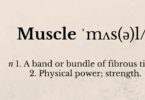If there’s one thing I legitimately think I’m good at, it’s writing. It’s been my job for my entire adult life: I’ve written instructional books, children’s books, advertising copy, and features, reviews and news for a huge variety of magazines. Sometimes, I read an old review of a dreadful, long-forgotten game where I spent an hour trying to get a particular turn of phrase just right, and it still makes me laugh. I love writing. I would do it even if I didn’t get paid, and in many cases actually do.
Recently, I’ve been trying to help other people with their writing, which is a whole lot trickier. I won’t go into specifics here, other than to say that if you follow Orwell’s Rules Of Writing religiously (trust me, if you think this is easy, you aren’t doing it) and read Made To Stick, you’ll put yourself ahead of about 80% of people who claim to be writers.
There’s other advice I give, though, and sometimes it works, or sometimes it doesn’t. Some people whose writing I’ve criticized get better, and others don’t. I’ve thought for a while about the difference between those two people, and it my only advice to the latter group boils down to one thing:
Just try a tiny bit harder.
I can’t put this next bit any better than Dave MacLeod, author of 9 out of 10 climbers make the same mistakes already has, so I’m going to quote him:
4% less effort does not get you 4% less results.
Often, 4% effort gets you 90% less results.
The return on making that little extra effort is vastly out of proportion with the extra work required. Multiply it across all the aspects of climbing performance, and 4% extra in each one delivers a windfall of results that lifts you over huge performance barriers.
In practice?
A top climber will try the boulder problem 26 times to your 25, and do it on the last go.
A top climber will rest 20 seconds less per attempt on the climbing wall than you (hint: multiply the extra attempts by the number of sessions per year to see the effects of this on training load).
A top climber will hang on five seconds longer than you before [dropping off the wall] and see the move that will get them to the top.
Every single one of these things seems trivial, but taken together they explain why the best do what they do, and you don’t.
Obviously he’s talking about climbing, but this applies to writing just as well – because once you know the rules, and can engage the reader, effort is more or less all that’s left. So maybe you spend an extra five minutes on the introductory paragraph, and think of an opener that’s better than the one you wanted to use. You take a minute to read over your work, and find a cliche that’s easily replaced with a more interesting turn of phrase. You realise you don’t need something, and slice it out. Things get sharper, better, easier. Sometimes, you’ll write something twice as good as you might have, just by putting that 4% of extra effort in.
This works with most things.
Of course, it’s not quite that simple. Yes, the secret really is just: try a bit harder, get a bit more aggressive, don’t give up quite so easily…but it’s not something to dabble in for a day, or a week. It’s something commit to for months, then years, every time you do The Thing. The rewards come slowly, but they can be huge.
Try 4% harder. And watch things change.
HOMEWORK: Sit down with a copy of George Orwell’s rules of writing and any other bit of writing you like – or don’t – and see just how well it handles them. If you’d like an extra challenge, try rewriting it so it’s sharper, less cliched, better. See how well it works. And then do it forever.







This spring I started helping a korean friend with her writing and it’s been really hard, mainly because I can recognize mistakes but can’t sufficiently explain why they are wrong.
Last week she spent 6 hours writing 10 different drafts for a 100-word prompt. She’s spending her time inefficiently and I don’t think trying just a little bit harder would help her :/ (maybe if she focused a little harder). I think she gets really intimidated when she has to write a formal essay, because otherwise her english is pretty spot on. It also doesn’t help that writing on a computer is really hard for a lot of people because the sentence flow/rhythym is so much different from those in normal conversation.
I’ll send her Orwell’s rules, but do you have any little tips or suggestions I can pass onto her? (besides “write what you know”)
Thanks, and I really like some of your recent posts 😀
cheers
Hi Zach, thanks for the intriguing (and slightly multi-layered) question. I’ll do my best here, but if I’ve misunderstood what you’re asking I apologise in advance:
1. When you say ‘I can recognise mistakes but can’t explain why they’re wrong’, I assume you mean grammatical mistakes. This is understandable: English grammar is sort of ridiculous, and tough to come to as a second language. I’m not a language teacher, but my best suggestion here is to read more. Hunter S Thompson used to actually write out passages from his favourite authors to get a sense of their flow. It’s not the worst idea I’ve heard.
2. In many ways formal essays are easier than more creative writing because the rules are well-established. I do think that writing longhand can help sometimes – Hemingway, for instance, used to write descriptive passages in longhand and speech on a typewriter, because of the different cadences they involve.
3. I agree that writing a load of drafts for one prompt is an inefficient use of time. My best advice is to write one (at most two) and be MERCILESS with it – go through it with a red pen and see which of those rules it makes. Tighten it up, rewrite parts, make sure it hits the rules.
Hope that helps.
“A mass of Latin words falls upon the facts like soft snow, blurring the outline and covering up all the details.”
This makes me want to write better!
Thanks for the Orwell reference; I had never read Politics and the English Language, which is pretty shocking for someone who studied English Literature at university. Perhaps Orwell was out of fashion at that time and in that place? We read a lot of Roland Barthes and TS Eliot.
Fabulous Site!